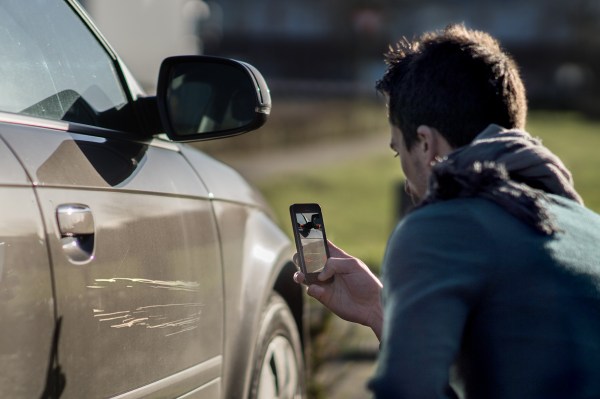Dutch startup Fixico is using the smartphone’s ubiquity to power a platform that connects car owners whose car has suffered cosmetic damage to bodywork repair shops that can polish out the scratches or hammer out the dent and return their pride and joy to its former glory.
The startup, which currently only operates in the Netherlands — officially launching its platform in April 2014 after a pilot in Amsterdam the year before — says it has generated more than 50,000 orders at a body repair shop thus far via its photo-to-quote platform.
Users of its platform take three photos of cosmetic damage to their car, uploading the pictures to Fixico’s platform where the images are then manually reviewed by its staff so that repair requests which lack enough detail can be filtered out at this stage — to ensure only “relevant leads” are delivered to the body shops.
Fixico says it vets the repair shops on the platform and requires they send a quote for repair within 24 hours of receiving photos. They are also required to give a fixed price guarantee based on the original quote so they can’t increase the charge after the fact, once a customer books the repair with their shop.
“Because it’s only cosmetic damage, photo’s work well enough. Scratches and dents are easily recognizable. Fixico monitors the request process, if a request doesn’t receive quotes, they’ll ask for improved images. Thanks to this quality control, they filter out 15 per cent of the requests as invalid,” it says.
If there’s additional mechanical damage above and beyond anything cosmetic that would obviously not be covered by the quote. But, on the flip side, if the bodyshop’s quote for the cosmetic repair is too low and it ends up costing them more than they thought to fix they have to take the loss.
Fixico notes there’s a bidding process for repair shops to bid on requests, so they are able to choose which jobs to chase. “If it’s not so busy, you can give a great quote and schedule it a slow moment, or offer extra’s such as transport,” it adds.
On the user side, car owners can select a repair service provider based on criteria such as price, service level and ratings from other users of the platform. Fixico claims users see savings of 30 per cent on average, given the increased transparency being generated by the platform.
Does manual vetting of photos scale? Fixico says its human-eye powered review process is “very fast” — taking one of its damage experts “ten seconds or less” to check each image. So it claims one of its reviewers could “easily” moderate 200 to 300 requests per day.
That said, it says it is also looking to implement photo recognition software, via a partner, to further speed things up as it seeks to expand into new markets.
It could also, in future, use the large database of damage images amassed to train AI software to help with the review task down the line, it adds.
The startup has just closed a €2 million funding round led by UK-Dutch tech fund Orange Growth Capital, with participation from prior investors and shareholders — adding to the €600,000 it had previously raised from angel investors. It describes the new round as “technically” a Series A, but notes it never raised a full blown seed round — so it’s more like half and half.
“In the Netherlands funding usually works differently. The first rounds are usually angel only, up until pre-seed. Even the seed round sometimes is done only with angels, as it’s very difficult to bridge the gap between angel and seed, and seed and Series A,” it adds. “This is… the case in many countries besides UK, France and Germany, where it’s hard to raise capital.”
Fixico says it grew 450 per cent last year, and is prepping its international expansion plans — intending to announce new markets after the summer, with Germany one possible option.
Market expansion is partly where the new funding is aimed, along with developing a whitelabel b2b offering to target the fleet and insurance market. Accelerating consumer growth in the Netherlands is another priority. It is also looking to roll out online payments with credit cards and PayPal as it expands into more markets (something it says is not currently feasible in the Netherlands owing to debit card usage dominating that market).
In terms of business model, users do not pay to use the platform but pay at the bodyshop after the repair work is done, with Fixico invoicing the bodyshops on its platform on a monthly basis — taking a commission percentage of each total order amount (plus a one-off sign up fee from each repair shop).
